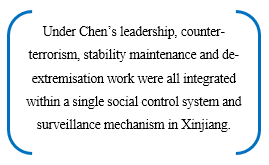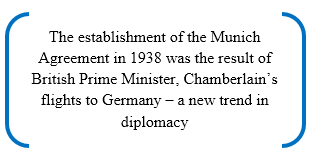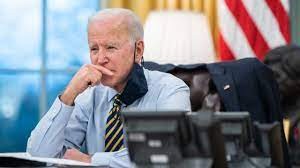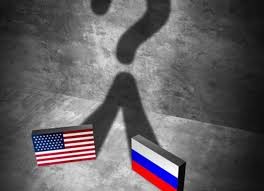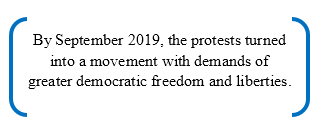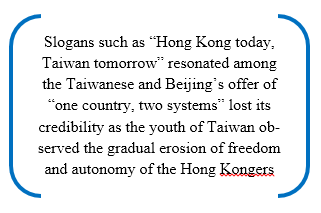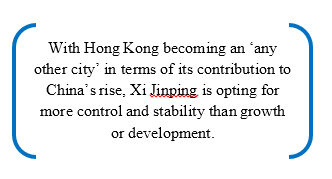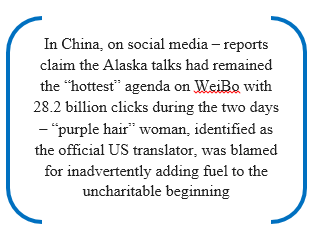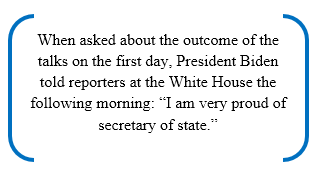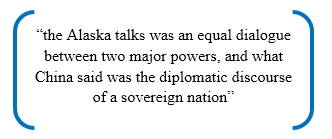Hemant Adlakha, Honorary Fellow, ICS, and Associate Professor, Centre for Chinese and Southeast Asian Studies, JNU
Special series on US-China Climate Diplomacy (2 of 2)

Source: firstpost.com
Summary
Earlier on, climate skeptics had wondered if President Biden’s January 27 Executive Order on “climate crisis” was “climate politrick?” Now, scholars in China have likened the US climate envoy’s hurried China visit last week to “a weasel calling on a friendly New Year visit to a chicken” – or a visit with evil intentions. Some overenthusiastic critics of the US in Beijing are even warning President Xi to not login for the online Earth Summit in Washington this week.
People in China believe a snake and a wolf must never be rescued. The belief comes from a popular idiom: the Zhongshan wolf or “The Wise Old Man and the Wolf.” In a few words, the essence of the popular Chinese adage is well-captured in the following sentence: a popular fairy tale about the ingratitude of a creature after being saved. Last year, the idiom entered China’s foreign policy discourse as several IR commentators employed it to describe “ingratitude” of the Trump-led America towards the Peoples’ Republic. Following the ascent of President Biden in the White House, the Chinese commentariat quickly course-corrected itself, i.e. neither Trump nor Biden, it is the US bipartisan anti-China consensus which is the real “wicked wolf.”
Just like the curt and bland statement issued by China’s foreign ministry acknowledging China will host the US climate envoy Kerry for three days in Shanghai, 14-17 April, China released on last Sunday the text of the joint China-US statement following Kerry’s departure on Saturday. The statement said: “The United States and China are committed to cooperating with each other and also with other foreign governments to tackle the climate crisis which must be addressed with seriousness and urgency it demands.” Interestingly, or rather conspicuously, the statement neither indicated nor was followed by another press release regarding whether China will be represented at the upcoming crucial 40-nation Earth Summit being hosted by President Biden.

Source: firstpost.com
While it is true a few Chinese scholars and think tanks have welcomed the worlds’ two largest carbon emitting nations to come forward to cooperate with each other upholding the spirit of the Paris climate agreement. What is perhaps unprecedented and more significant is the warning to President Xi by a section of China’s leftist intelligentsia to beware of Biden’s “climate politrick.”
Talking of those who welcomed Xi-Biden climate cooperation initiative – the first sign of bilateral cooperation since the Trump interregnum, Zhang Jianyu, chief representative and vice president of the non-profit Environmental Defense Fund’s China Program, reacted positively and said: “The fact that the joint statement has been signed, means that both Beijing and Washington believe in climate change. We are hoping both China and the US take bold actions.” Li Shuo, senior climate adviser for the environmental group Greenpeace, said China could soon respond to a new U.S. pledge with one of its own, building on the “momentum” of the Shanghai talks. “The statement in my view is as positive as the politics would allow: It sends a very unequivocal message that on this particular issue (China and the United States) will cooperate. Before the meetings in Shanghai this was not a message that we could assume,” Li added.

In contrast, an article in Utopia, one of the influential “anti-US” platforms for ideological debate in China, cautioned China’s top leadership while questioning Biden’s credentials to host the Earth Summit. The pro-Mao, leftist online intellectual discourse forum advocates Maoist and communist ideology. In a signed article on the forum’s website last Saturday – the day John Kerry concluded his 3-day stay in Shanghai and left for Seoul, a commentator using strong words not only “condemned” Joe Biden for his “arrogant” and “hypocritical” foreign policy thinking, but also urged the Chinese leadership to thwart Washington’s attempt to regain the US leadership by holding the Earth Summit beginning Thursday. The article was entitled: “China must resist and fight back hypocrite Biden.”

Source: firstpost.com
In fact, as early as in November last year, within days of the presidential voting, a section of scholars in China were writing “the election of Biden may or may not turn out to be a turning point for easing Sino-US frictions…with Biden in power, the nature of Sino-US relations will not see a fundamental change, but the mode of confrontation will be relatively soft and the direction of negotiations will be more predictable.” However, with each passing day since taking office, President Biden’s China policy has consistently been predictable in only one direction – in enduring the Trump legacy. The most recent manifestation of which was on display at the testy diplomatic summit last month in Anchorage where senior officials from the two countries “traded sharply critical assessment” of each other’s policies.

Another Chinese commentary has highlighted six ideological “attacks” the US has carried out against China in the international arena under Trump and Biden administrations respectively. First is the classic example of the US-Japan nexus in politicizing and turning on its head the Chinese opposition to Japan’s decision to release radioactive contaminated water from Fukushima into the sea; second is the Western governments and media carrying out slanderous campaign of China’s “economic colonialism” in Africa; third, as soon as China succeeded in containing fight against COVID-19 last year in May and started offering humanitarian assistance abroad, the US-led started defaming and discrediting China by launching “mask diplomacy” campaign against Beijing; fourth, just like vicious propaganda maligning China’s economic assistance to Africa and China’s humanitarian aid by free supply of PPE and masks, the US launched “vaccine diplomacy” campaign to vilify China; the fifth is attacking China using the virus trajectory and accusing China of developing COVID-19 virus and exporting it from chemical laboratory in Wuhan; the sixth and the latest anti-China “false” propaganda is the “genocide” in Xinjiang. Unlike the genuine human rights violation by Japan to release the contaminated water into the sea, the false propaganda against China is aimed at creating anti-China world public opinion, creating social unrest and turbulence in China and ultimately achieving their goal of destroying China, the article stated.

Finally, it is not incorrect to view President Xi’s highly charged remarks made at two most recent international events respectively in the context of strongly-worded articles published in Utopia and other left-leaning online websites in the past few days. Two days prior to the arrival of Kerry in China, President Xi, according to the Xinhua news agency, warned the US in his speech at the China-Germany-France trilateral video conference on climate change: “Climate change could be used as a tool to disparage some countries for not doing enough.” Then two days prior to the Earth Summit, Xi apparently reiterated his stern warning to President Biden: “We must not let the rules set by one or a few countries be imposed on others, or allow unilateralism pursued by certain countries to set the pace for the whole world.” The remarks by Xi were made at China’s annual Boao Asia Forum on Tuesday.

Source: globaltimes.cn
China’s semi-official “independent” English language CX Daily interpreted Xi’s above remarks as “veiled swipe at the new US administration under Biden” that has been busy forming alliances challenging China over issues such as Taiwan, Hong Kong and Xinjiang. Of late, mainstream media in China has been accusing Biden of not only carrying on and enduring the Trump legacy in relentlessly “attacking” China, but also that Biden has gone far beyond Trump in insulting and condescending Beijing. In fact, the Utopia commentary uses another Chinese idiom “externally strong, empty inside” to caricature Biden’s personality. It cites two recent incidents to establish how weak and hollow is President Biden, i.e. the US-China talks in Alaska and Putin’s resolve to dare the US in the Black Sea – in both instances, Biden simply caved in after he was challenged, the commentary observed. “On Iran nuclear deal issue too we saw Biden acting in the same surreptitious and crude manner. He [Biden] is typical treacherous man,” the Utopia commentary continued its verbiage.
Some Chinese scholars, therefore, have welcomed Xi’s remarks as clear rebuff to what the mainstream Western media, in particular the Wall Street Journal has been spreading, i.e. “Xi would participate in the US-initiated climate summit later this week.” These scholars are invoking yet another ancient Chinese proverb “Mouth honey belly sword” or Koumifujian in Chinese. The idiom is used as a metaphor for describing someone extremely sweet on the outside but actually shrewd, cunning and sinister. Most Chinese IR commentators are telling us, the idiom is a perfect description of Biden.
The article was first published as “Is the Washington Initiated Climate Summit a Biden ‘Politrick’” in Modern Diplomacy on 22 April 2021.












